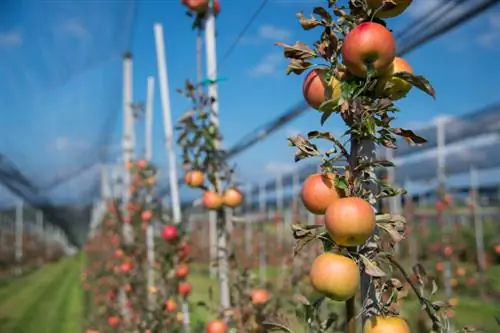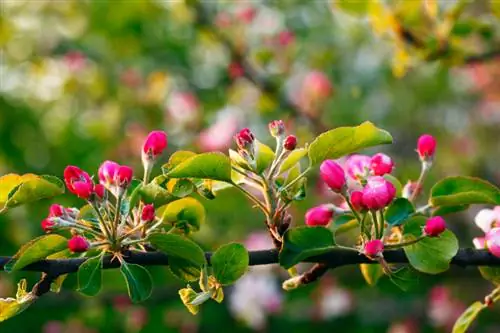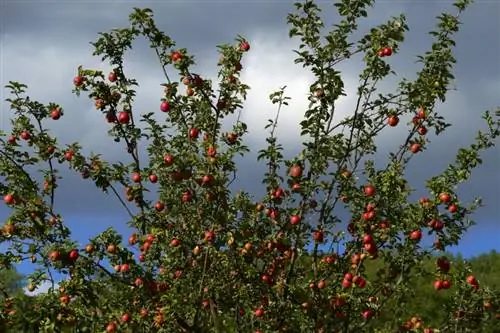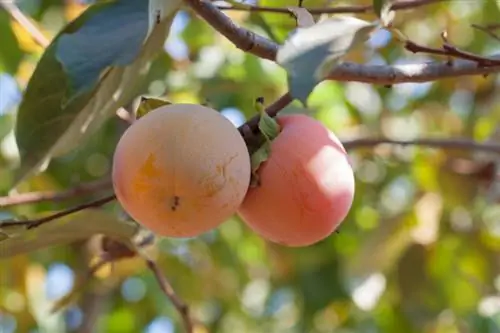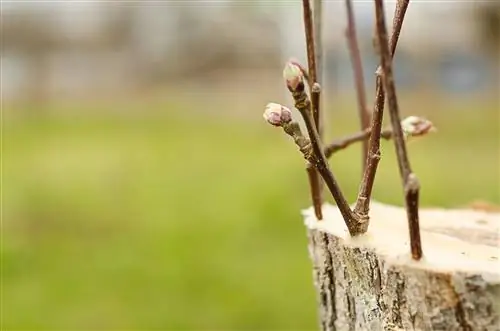- Author admin leonars@hobbygardeners.com.
- Public 2023-12-16 16:46.
- Last modified 2025-01-23 11:19.
When you decide on a specific apple variety, parameters such as size and growth rate are also partially determined. Nevertheless, with the right care, every tree can be influenced during the growth phase.
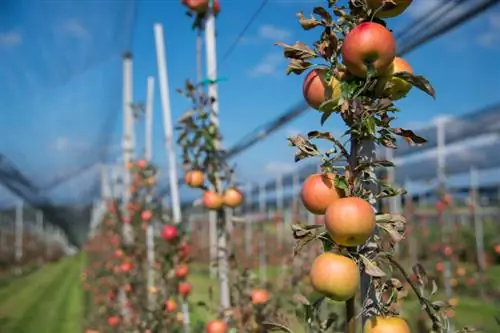
What factors influence the development of an apple tree?
The development of an apple tree is influenced by factors such as variety, age, location and care. When young, apple trees grow more slowly, while varieties adapted to the climate thrive better. Targeted pruning promotes optimal development in different forms, such as espaliers or bonsai.
Slower growth in the early years of life
If you are thinking about growing an apple tree yourself from a core, you must have the appropriate patience. Apple trees grow relatively slowly at a young age, even if they are cut back in wild forms. In contrast, a commercially available tree that has been grafted as a half-stem or standard tree is usually around four to six years old. You can harvest apples from such a tree earlier if it has been selected appropriately for the respective location.
Incorrect locations and varieties make development difficult
Only a tree that is climatically adapted to a specific location will be able to develop optimally. Many varieties from the grocery store would be rather unsuitable for cultivation in this country, which is why collecting the cores from these apples is not really worth it. If your garden is surrounded by tall thuja hedges or something similar, you should choose apple trees with a standard trunk shape for light and well-ventilated treetops. These lie with the treetop above the hedges and can therefore be easily dried by the wind after rain. In shady and moist locations, varieties with resistance to mildew and other fungal diseases can be useful, including:
- Rhine Bean Apple
- Striped Cardinal
- Danziger Kantapfel
- Melba
- Golden Delicious
- James Grieve
Development through the changing seasons
The best time to plant an apple tree is in autumn, when all the leaves have already fallen. After winter, the apple blossoms first appear in March and April before the leaves sprout on the branches. If the pruning was not adequate in February and March, this can be corrected with the summer pruning.
Tips & Tricks
Through targeted cuts, an apple tree's development can be influenced to such an extent that it becomes a trellis or bonsai.

